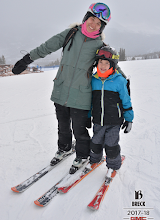I notice body language. Fathers and mothers of toddlers are beginning to hunch over in perpetual assistance to their wobbly ones. I notice breathing. Mothers, unacquainted with the breath, getting caught in the whirlwind pace of two year olds and their intense emotional displays.
A practice to increase willpower was suggested by scientists: Whenever you think of it, adjust and improve up your posture. Results of the study showed that exercising that little bit of willpower helped improved other areas of participants lives, such as healthier lifestyles and increased financial well being.
Amy Cuddy presented a talk on TED about the power of body language, in which she presented her study that individuals who stood in a "power pose" rather than a disempowered pose for two minutes increased their testosterone levels and decreased their cortisol levels immediately and therefore performed much better in a stressful interview experience. A power pose, by the way, is something like extending your arms above your head like a champion, or putting your hands on your hips like wonder woman.
In practicing mindfulness we always return to the breath and thereby we notice the shallowness that happens when we begin to let our minds wander to stressful thoughts. Most of our day we don't ay attention to our breath, but we can always come back to it. I practice noticing when I feel anxiety and then deepening my breath around it. Anxiety doesn't help me find the creative solution. Frustration with children is just a fight against what is, and breathing helps regain a more beneficial, peaceful, happier perspective.
Most people breathe just enough to get by. It's contributing to disease and stress. Runners get to breathe a whole lot. Breathing might be the best part about sex, and without proper breathing, orgasm is impossible. It moves the energy through our bodies.
Willpower. Parenting uses up a lot of willpower! And studies showed that after doing exhausting and challenging tasks, participants had no leftover willpower to choose fruit salad over cake! it's good that I know that, because then I don't have to form a belief that my eating cake when it's presented to me means I have weak willpower. It just means being a preschool teacher is challenging and my exercising patience and peacefulness amidst the occasional chaos uses my reserves which usually help me make the good nutritional choices!
So, just keep practicing. One day, when the little ones have grown past the sociopathic two year old phase ;) parents will discover a huge willpower muscle that we will then collectively use to light up the world!!!
Friday, 7 June 2013
Subscribe to:
Posts (Atom)
